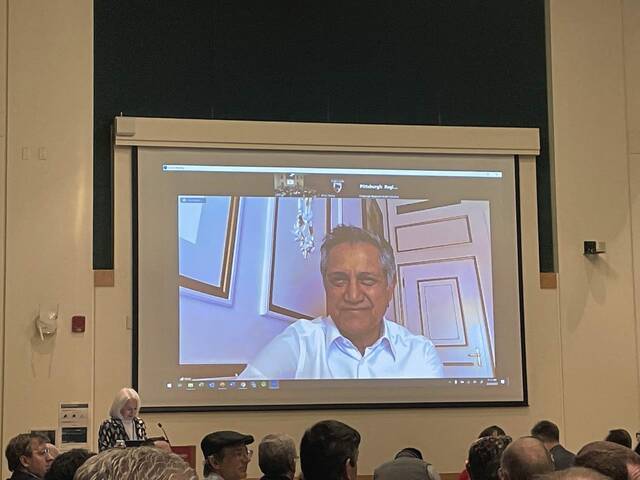Think about your smartphone.
You rarely leave home without it, and there’s a team dedicated to making sure the device is upgraded and meaningful to you.
But a dedicated team to making sure health care is safer for patients — and that workers can work in the best environments — isn’t really there, according to Karen Wolk Feinstein.
“There is no dedicated team, certainly on the federal level, working on patient safety and exploring the opportunities of modern technologies to create that safety net,” Feinstein said Friday at Carnegie Mellon University. Feinstein is president and CEO of the Pittsburgh Regional Health Initiative, an arm of the Jewish Healthcare Foundation, where she also serves as president and CEO.
“We have a lot of people exiting clinical care and hospital settings, nurses, physicians. And their argument, among others, is the working conditions don’t allow us to deliver care safely,” she said.
For years Southwestern Pennsylvania has touted its reputation as a hub for “meds, eds and tech” with its health care systems, universities and tech scene.
It’s in the hope of leveraging those sectors that The Regional Autonomous Patient Safety initiative officially was launched Friday.
The initiative is dedicated to improving health care safety through the use of things like artificial intelligence, machine learning and other innovations.
The Jewish Healthcare Foundation is among the organizations that have been pushing for a federal safety board, much like the National Transportation Safety Board.
“There’s so much talent in our community that maybe we don’t wait,” Feinstein said. “As much as I’d like to have a National Patient Safety Board — and believe me, we’re working very hard on that. There’s so much we can do regionally.”
Keynote speaker Joe Kiani, chairman and CEO of Masimo Corp., advocated for standard operating procedures in hospitals that would help “avoid human errors from becoming medical errors.”
The founder of the Irvine, Calif.-based medical technology company said two big challenges are hospital-acquired infections and medication errors. Kiani’s company seeks greater transparency in meeting those goals to keep those numbers down.
“One of the things all of us know is 75% of every medical error has to do with poor hand-off communication,” he said. “And a lot of overburdened nurses and doctors with all the alarms and information hitting them.”
He said this is one example of how technology can assist where a platform can integrate the patient data into one place and quickly communicate with a clinician before they enter a room.
Kiani said Masimo manufactures wearable technology that would allow people who have been discharged to monitor their symptoms at home more easily and quickly notify professionals if something goes wrong.
The event was co-hosted by the Pittsburgh Regional Health Initiative and the Pittsburgh Technology Counci. It was presented in partnership with Carnegie Mellon University’s Center for Digital Health Innovation, the University of Pittsburgh’s Center for Military Medicine Research, and the University of Pittsburgh School of Medicine’s Department of Biomedical Informatics.











